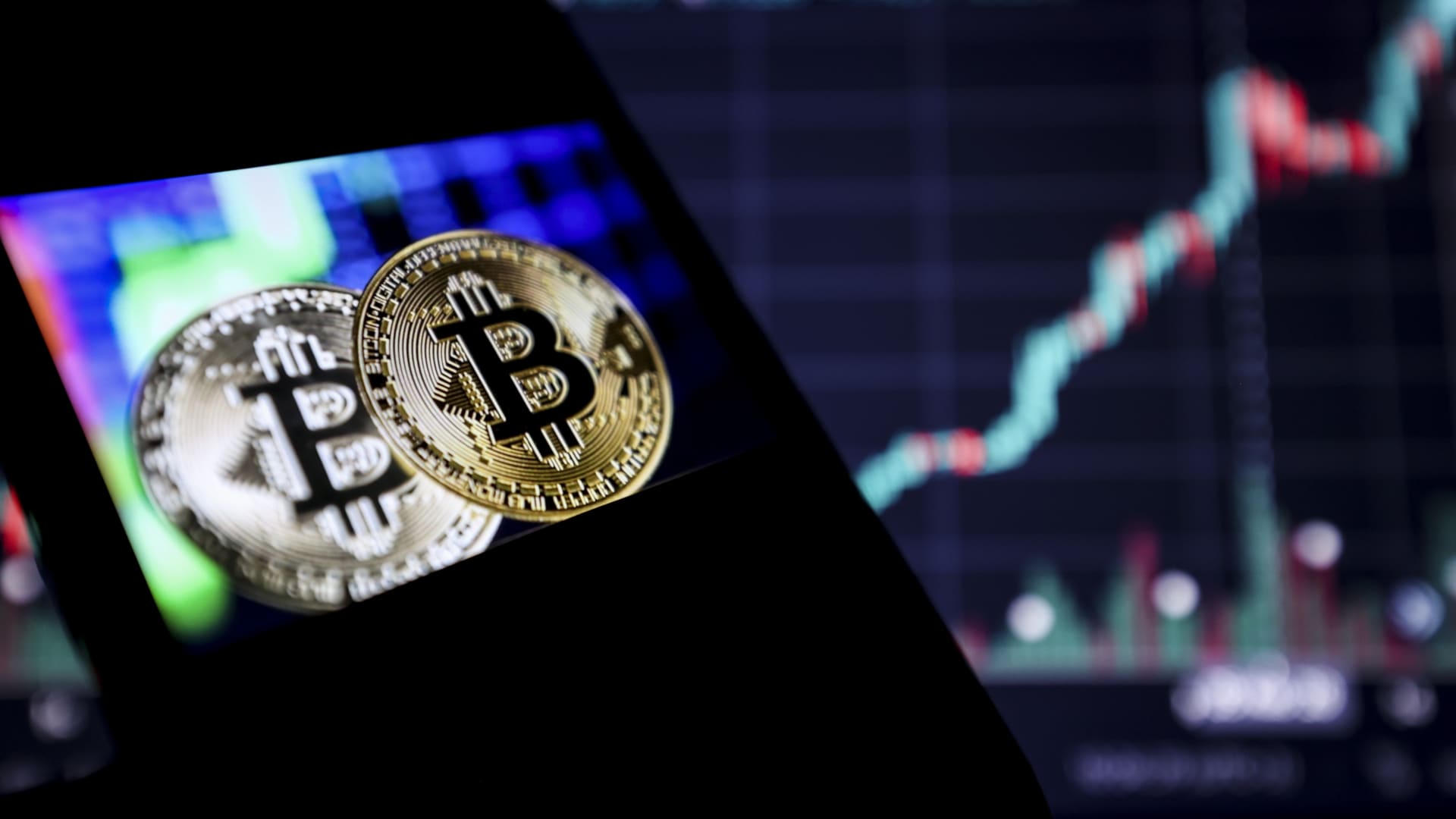
Bitcoin rose above $23,000, following stocks higher after the U.S. Federal Reserve raised interest rates but suggested the pace of hikes could slow.
Cryptocurrencies have been quite correlated to U.S. stocks, in particular the Nasdaq, which on Wednesday jumped 4%.
Bitcoin traded at $23,168.88 at around 3 a.m. ET on Thursday morning, up around 9% from 24 hours prior, according to data from CoinGecko.
Other digital coins rose too. Ether was about 13% higher at $1,645.56.
On Wednesday, the Fed raised its benchmark interest rate by 0.75 percentage points as its looks to fight rampant inflation without tipping the economy into recession. But the central bank’s chair Jerome Powell suggested that the pace of rate rises could slow, which sparked an equity rally on Wednesday which has fed through to European and Asian trading on Thursday.
“The conclusion of Wednesday’s Fed meeting opens up a summer window for a Bitcoin relief rally, given we now have two months until policymakers next deliberate on monetary policy,” Antoni Trenchev, co-founder of cryptocurrency wallet Nexo, said in a research note.
Bitcoin is attempting to stage a sustained rally after several failed attempts this month. The world’s largest cryptocurrency has been trading within a range of between $20,000 to just over $24,000 since mid-June after a brutal crash this year wiped off 50% of its value.
“The next 24 hours will be a true test of Bitcoin’s re-discovered resilience after it shrugged its shoulders at this month’s stellar U.S. inflation data and didn’t wince when Tesla announced it has sold most of its BTC (bitcoin) holdings,” Trenchev said.
Tesla said last week that it had sold 75% of its bitcoin holdings.
The cryptocurrency market has been battered this year with billions of dollars being wiped off as macroeconomic issues have taken their toll and companies have imploded. Two high-profile examples are crypto lending platform Celsius and hedge fund Three Arrows Capital which have both filed for bankruptcy and brought many investors down too.
Crypto market players who previously spoke to CNBC said they are uncertain whether the shakeout and deleveraging is over yet.




